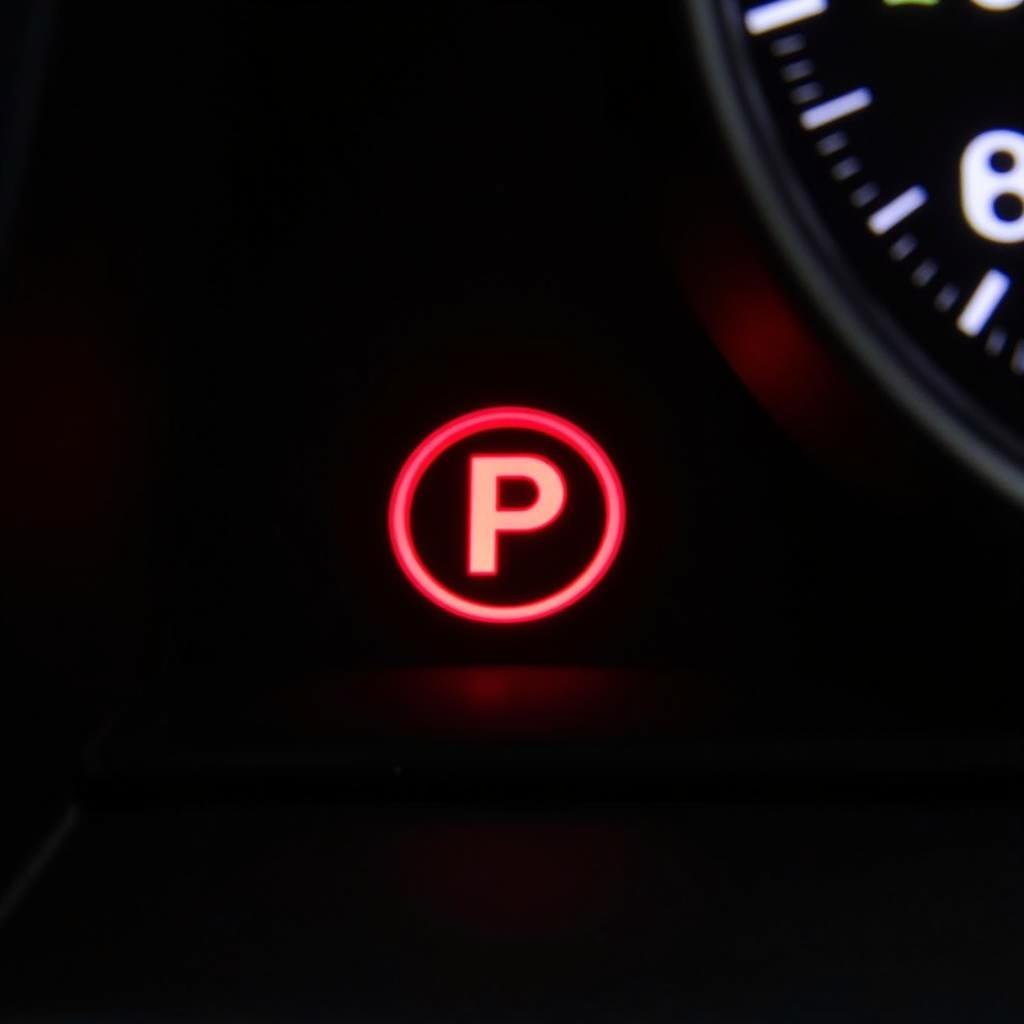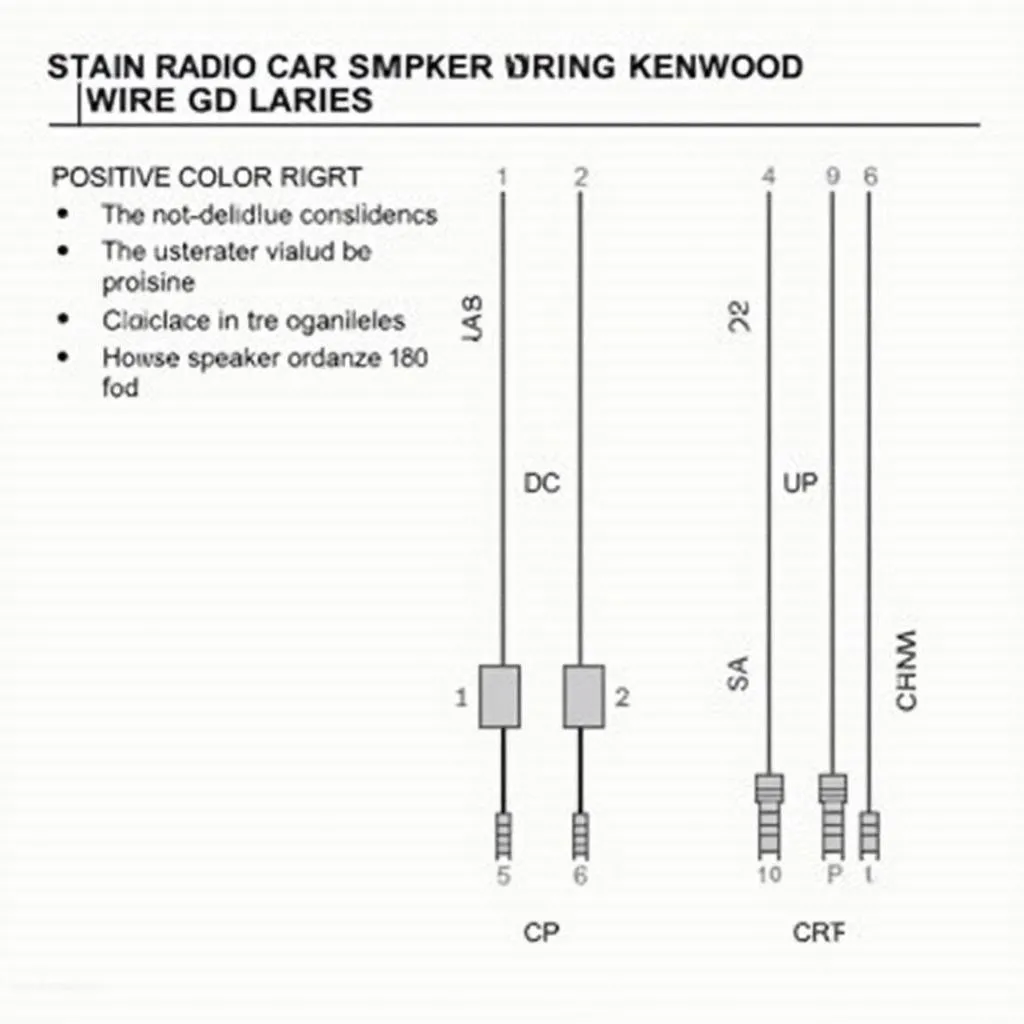The anti-lock brakes warning light, often illuminated as “ABS” or encircled with the letters “ABS,” is an essential safety feature in your vehicle. When it illuminates on your dashboard, it signals a potential issue with your Anti-lock Braking System (ABS). While this doesn’t necessarily mean your entire braking system is compromised, it’s crucial to understand the underlying cause and take appropriate action to ensure your safety on the road.
Understanding Your Anti-Lock Brake System (ABS)
Before delving into the reasons behind the warning light, it’s important to understand how your ABS functions. In essence, ABS is designed to prevent your wheels from locking up during hard braking. It accomplishes this by monitoring the speed of each wheel and regulating the brake pressure applied to each one individually. This helps you maintain steering control and prevents skidding, particularly on slick or uneven surfaces.
Common Causes of an Anti-Lock Brakes Warning Light
There are several reasons why your anti-lock brakes warning light might turn on. Here are some of the most common culprits:
-
Faulty ABS Wheel Speed Sensor: One of the most frequent causes is a malfunctioning ABS wheel speed sensor. These sensors, typically located near each wheel, monitor wheel speed and relay this information to the ABS control module. A damaged, dirty, or improperly installed sensor can disrupt this process, triggering the warning light.
-
Issue with the ABS Control Module: The ABS control module acts as the brain of the system, processing data from the wheel speed sensors and controlling the ABS hydraulic unit. If this module malfunctions due to electrical issues or internal faults, it can lead to an illuminated warning light.
-
Low Brake Fluid Level: Your ABS system relies on adequate brake fluid pressure to function correctly. If the brake fluid level drops too low, often due to a leak in the brake lines or a worn-out master cylinder, the warning light may illuminate.
-
Problem with the ABS Hydraulic Unit: The ABS hydraulic unit is responsible for adjusting the brake pressure to each wheel based on instructions from the control module. If this unit experiences internal issues or malfunctions, it can trigger the warning light.
What to Do When Your Anti-Lock Brakes Warning Light Turns On
If your anti-lock brakes warning light comes on, don’t panic. While it indicates a potential issue, your traditional braking system should still function. However, it’s crucial to address the problem promptly. Here’s what you should do:
-
Exercise Caution: Continue driving cautiously, but avoid any sudden braking or maneuvers that might require ABS intervention.
-
Schedule an Inspection: Reach out to a qualified mechanic specializing in automotive electrical systems and brake repair. They can diagnose the problem using specialized diagnostic tools.
-
Remote Diagnostics and Software Solutions: In some cases, remote diagnostics and software solutions can be employed to identify and address the issue. This involves connecting your vehicle to a remote computer system that can read and interpret fault codes, potentially even resolving the problem through software updates or adjustments.
Benefits of Remote Diagnostics and Programming
Remote diagnostics and programming offer several advantages in addressing ABS warning light issues:
-
Convenience: You can have your vehicle diagnosed and potentially repaired without leaving your home or office.
-
Efficiency: Remote diagnostics can often pinpoint the problem more quickly than traditional methods, saving you time and money on labor costs.
-
Software Updates: In some instances, the issue can be resolved through software updates, which can be performed remotely.
-
Expert Support: Remote access allows experienced technicians to analyze data and provide guidance, ensuring the problem is addressed correctly.
Ignoring the Warning Light: Risks and Implications
Ignoring the anti-lock brakes warning light can have serious safety implications. Without a functioning ABS, you risk:
-
Increased Stopping Distances: Your vehicle will take longer to come to a complete stop, especially on slippery surfaces.
-
Loss of Steering Control: Without ABS, your wheels can lock up during hard braking, making it impossible to steer and potentially leading to an accident.
-
Exacerbating Underlying Issues: Ignoring the warning light might allow a minor problem to escalate into a major repair, costing you more time and money in the long run.
Conclusion
Your anti-lock brakes warning light is a critical safety indicator that should never be ignored. By understanding its significance and taking prompt action, you can ensure the optimal performance of your vehicle’s braking system and, most importantly, enhance your safety on the road. If you experience this issue, seek the expertise of a qualified technician or explore the benefits of remote diagnostics and programming to resolve the problem effectively and efficiently.
Frequently Asked Questions:
1. Can I drive my car with the ABS light on?
It’s not recommended to drive extensively with the ABS light illuminated. While your conventional brakes should still function, you won’t have the added safety of ABS. It’s best to schedule an inspection as soon as possible.
2. How much does it cost to fix an ABS light issue?
The cost of repair can vary significantly depending on the underlying cause. A simple sensor replacement might be relatively inexpensive, while a faulty ABS control module can be more costly.
3. Can I check the ABS system myself?
While you can visually inspect your brake fluid level and look for obvious damage to ABS components, diagnosing the issue accurately requires specialized diagnostic tools and expertise.
4. How often should the ABS system be inspected?
It’s a good practice to have your ABS system inspected annually or as part of your vehicle’s regular maintenance schedule.
5. Is it safe to replace an ABS sensor myself?
While replacing an ABS sensor might seem straightforward, it’s generally advisable to have it done by a professional. Improper installation can lead to ongoing issues with your ABS.
6. How do I know if my brake fluid is low?
Most vehicles have a brake fluid reservoir with a minimum and maximum marking. If the fluid level is below the minimum mark, it needs to be topped up. However, it’s essential to determine the cause of the low fluid level, as it could indicate a leak.
7. Can a bad battery cause the ABS light to come on?
While a severely depleted or faulty battery can cause various electrical issues in your vehicle, it’s less likely to directly trigger the ABS light. However, it’s always a good idea to maintain a healthy battery to avoid unexpected electrical problems.


